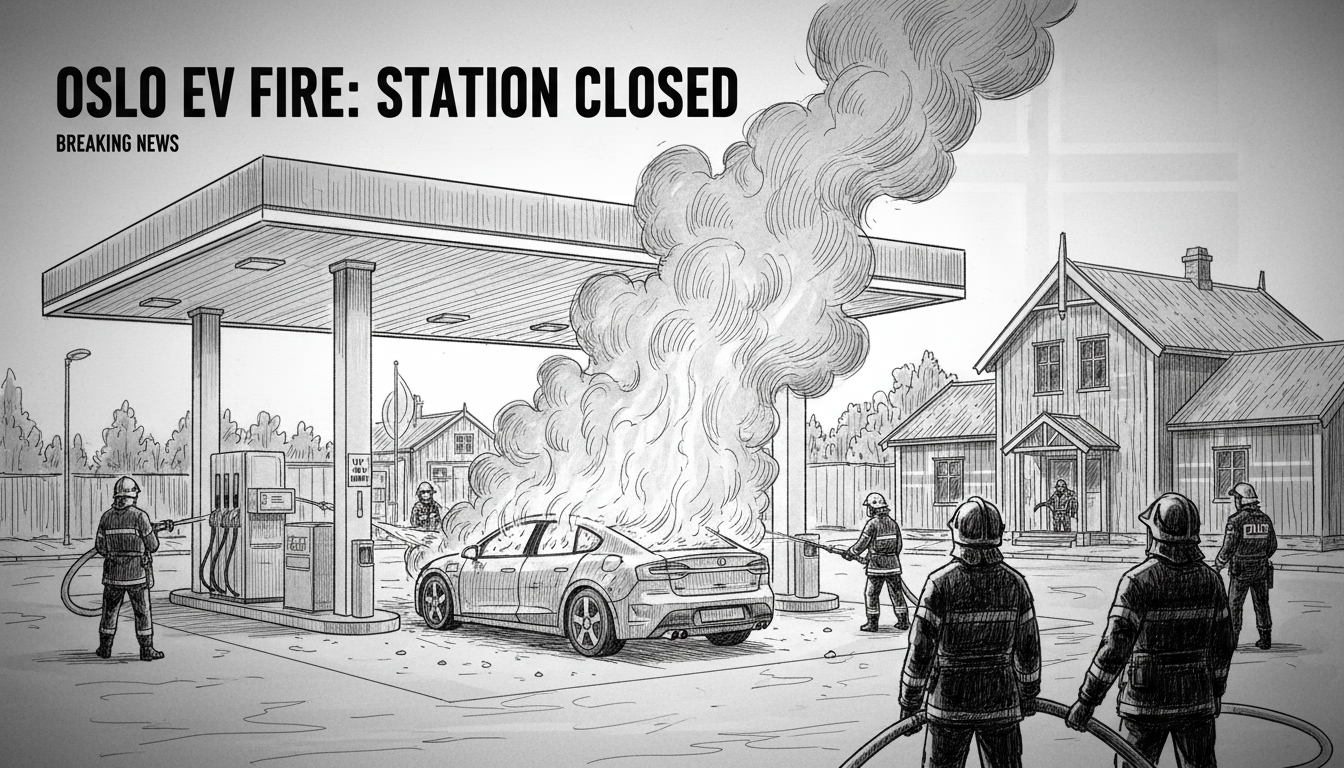An electric car fire at a central Oslo gas station prompted road closures and safety warnings for nearby residents. Emergency services responded to the Circle K station at Økern just before noon on Wednesday after reports of a vehicle fully engulfed in flames. No injuries resulted from the incident, but authorities advised neighbors to close windows due to heavy smoke.
Police operations leader Anders Aas confirmed fire crews worked extensively to extinguish the blaze. The vehicle was completely burned out according to fire service assessments. Officials maintained a presence on site to monitor for potential smoldering in the station's roof structure. The entire station and surrounding area remain closed while investigators secure the scene.
Operations leader Bjørn Gunnar Nysæter stated police are investigating both the fire's cause and the sequence of events. Security footage from the station has been secured as evidence. Initial findings suggest technical issues sparked the fire rather than human error or external factors. The investigation will examine the vehicle's battery system and charging history.
This incident raises questions about electric vehicle safety in dense urban environments like Oslo. Norway leads global EV adoption with electric cars comprising over 80% of new vehicle sales. The country's rapid transition from fossil fuel vehicles creates new challenges for emergency responders. Fire crews must develop specialized protocols for lithium-ion battery fires, which require different suppression techniques than conventional gasoline fires.
Oslo's ambitious climate goals include becoming a nearly zero-emission city by 2030. The city government promotes widespread EV adoption through tax incentives and charging infrastructure expansion. This fire represents a test case for urban emergency response to EV incidents. Previous electric vehicle fires in Norway have typically occurred in less populated areas or private garages rather than public fueling stations.
The Økern neighborhood houses both residential buildings and commercial enterprises. Its location near major transportation routes makes any closure disruptive. Circle K operates numerous stations across Norway and maintains strict safety protocols. The company will likely review procedures for EV charging and emergency response at all locations following this incident.
Norwegian fire services have developed specific guidelines for electric vehicle incidents over recent years. These include extensive cooling periods and specialized equipment to prevent battery reignition. The Oslo Fire Department's response demonstrates their preparedness for such events, though each incident provides valuable lessons for future emergency planning.
Electric vehicle safety remains generally high despite occasional fires. Studies show EVs catch fire less frequently than internal combustion vehicles. The distinctive challenges of battery fires require continuous refinement of emergency response strategies. Norwegian authorities maintain detailed records of all vehicle fires to identify patterns and improve safety standards.
This incident occurs as Norway continues its world-leading transition to electric transportation. The country's experience informs global EV safety standards and emergency response protocols. While dramatic, isolated fires like this one represent rare exceptions rather than common occurrences in Norway's electric vehicle ecosystem.

